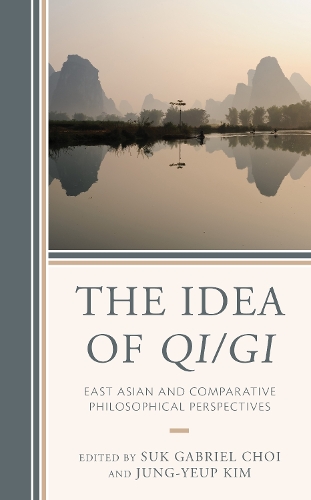
The Idea of Qi/Gi: East Asian and Comparative Philosophical Perspectives
(Hardback)
Publishing Details
The Idea of Qi/Gi: East Asian and Comparative Philosophical Perspectives
By (Author) Suk Gabriel Choi
Edited by Jung-Yeup Kim
Contributions by Yung Sik Kim
Contributions by Halla Kim
Contributions by Bongrae Seok
Contributions by Edward Y. J. Chung
Contributions by Jeong-Woo Lee
Contributions by So Jeong Park
Bloomsbury Publishing PLC
Lexington Books
3rd December 2018
United States
Classifications
Professional and Scholarly
Non Fiction
Buddhism
Taoism
181.11
Physical Properties
Hardback
192
Width 162mm, Height 230mm, Spine 20mm
422g
Description
The notion of qi/gi () is one of the most pervasive notions found within the various areas of the East Asian intellectual and cultural traditions. While the pervasiveness of the notion provides us with an opportunity to observe the commonalities amongst the East Asian intellectual and cultural traditions, it also allows us to observe the differences. This book focuses more on understanding the different meanings and logics that the notion of qi/gi has acquired within the East Asian traditions for the purpose of understanding the diversity of these traditions. This volume begins to fulfill this task by inquiring into how the notion was understood by traditional Korean philosophers, in addition to investigating how the notion was understood by traditional Chinese philosophers.
Reviews
This anthology offers a fascinating and wide-ranging discussion of the significance of qi/gi in Chinese and Korean neo-Confucianism. Essential reading for those who want to understand the diversity of approaches to this concept in East Asian thought. -- Timothy Connolly, East Stroudsburg University
This book is a comprehensive investigation of the concept of qi/gi, one of the essential concepts in understanding the East Asian world view, cultures, and ways of thinking. This is an excellent analysis of the diverse theories of various scholars who followed the school of qi/gi in China and Korea. -- Young-Chan Ro, George Mason University
This book touches on diverse aspects of Qi philosophy, a body of philosophical discourses on the most categorical concept in East Asian ways of thinking and living, through introduction and analyses of influential thinkers theories from both Korea and China. It is a ground-breaking academic contribution that caters to the need to clearly understand how significantly, and divergently, the concept qi has been integrated into the nexus of East Asian philosophy. -- Hongkyung Kim, Stony Brook University
Author Bio
Suk Gabriel Choi is associate professor of philosophy and director of the Asian Studies Program at Towson University. Jung-Yeup Kim is associate professor of philosophy at Kent State University.
